10 Gen Z Marketing Strategies to Make Your Brand Popular

Although Gen Z is the big future market for businesses, many marketers are unsure how to reach out to this group. What are their passions? What are their preferred platforms? Why would people choose one brand over the other?
We’ll dig into it a little later, of course, but first, here’s some background information. People belonging to Gen Z were born between 1996 and 2014; thus, they are the first generation to have grown up with easy exposure to technology.
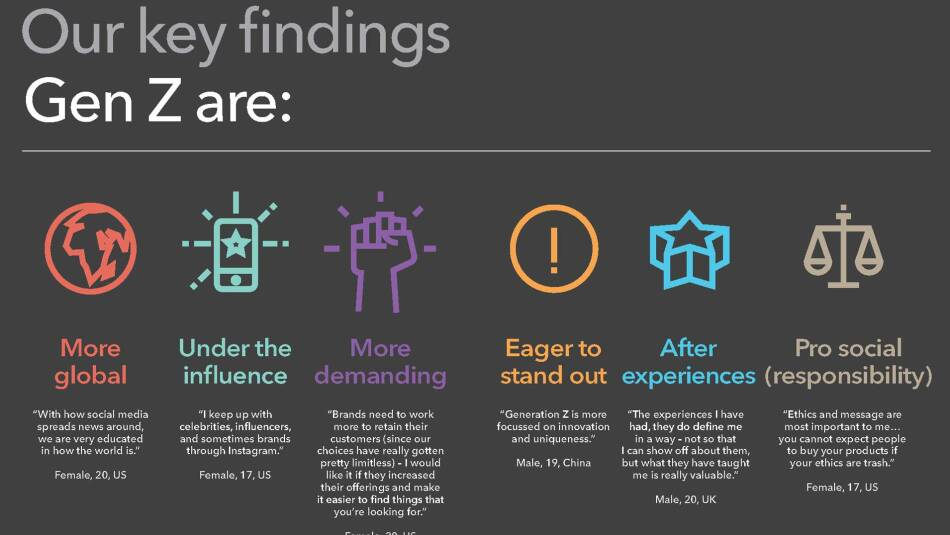
They’re innovative, fearless, and the originators of numerous trends across TikTok, Instagram Reel, Snapchat, and other social media sites. They also require a slightly different strategy than their millennial peers.
Why Does Gen Z Matter for Your Business?
There are over 2.6 billion Gen Z people globally, demonstrating their enormous impact on businesses in particular. Gen Z is no longer solely made up of children. Many of them have already begun working. That implies you must target them for your business.
Furthermore, members of Gen Z are among the most important buyers of businesses such as cosmetics. Although their buying power is typically lesser, it should not be overlooked. Members of Gen Z have an impact on business via their families.
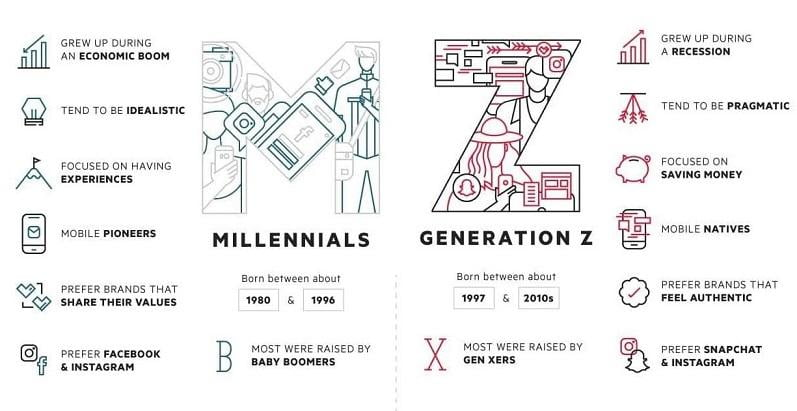
Many parents lavish a great deal of money on their children, and all these youngsters, or young adults, are the new generation. They even influence their family’s shopping selections.
Moreover, because Generation Z is a first of its kind, it is an entirely tech-savvy generation. Those organizations with a flair for infusing the latest technology into their operations would have a higher ability to attract them.
Finally, the Gen Z era is only getting started. It will last until 2030, which implies that any business that intends to remain in the market in the coming decades must begin carefully considering them now.
We’ve compiled a list of ten Gen Z marketing strategies.
10 Gen Z Marketing Strategies to Make Your Brand Popular
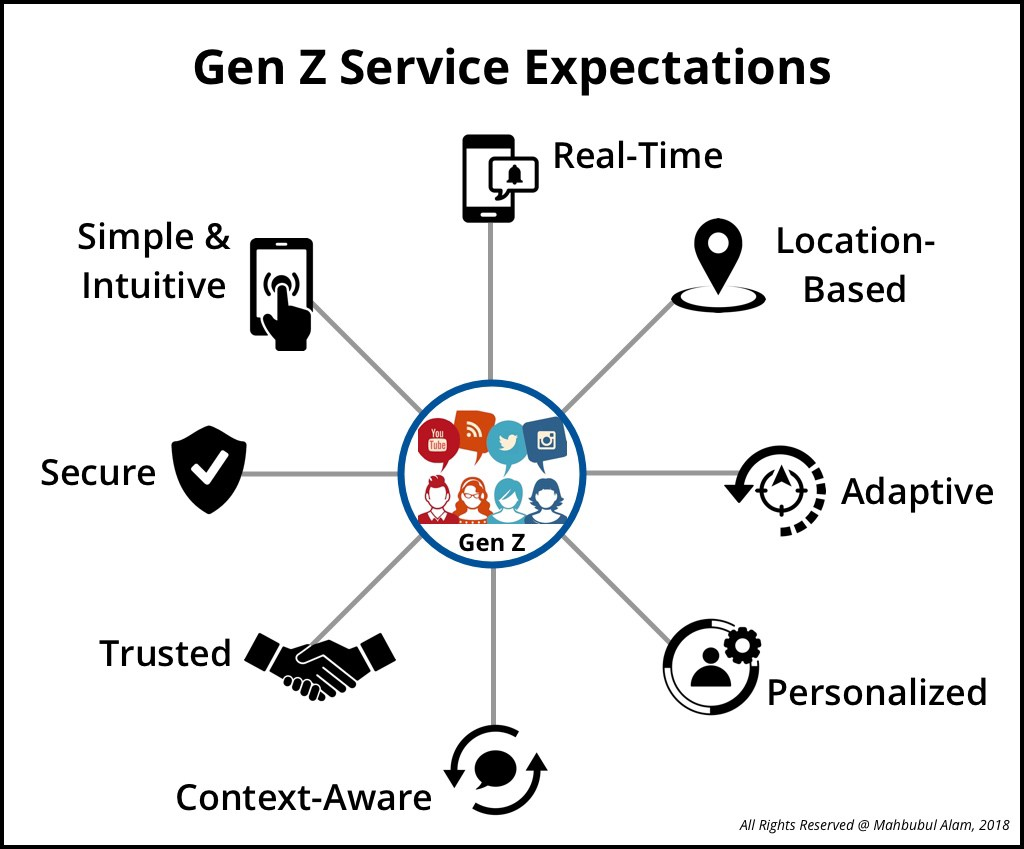
1. Pick the right platforms.
There seem to be more social media sites than ten years ago, influencing people’s demographics.
Facebook has long been regarded as the social media platform of choice for Baby Boomers, especially older Millennials, to stay in contact with family and friends. Twitter is primarily a Millennial and Generation X lounge.
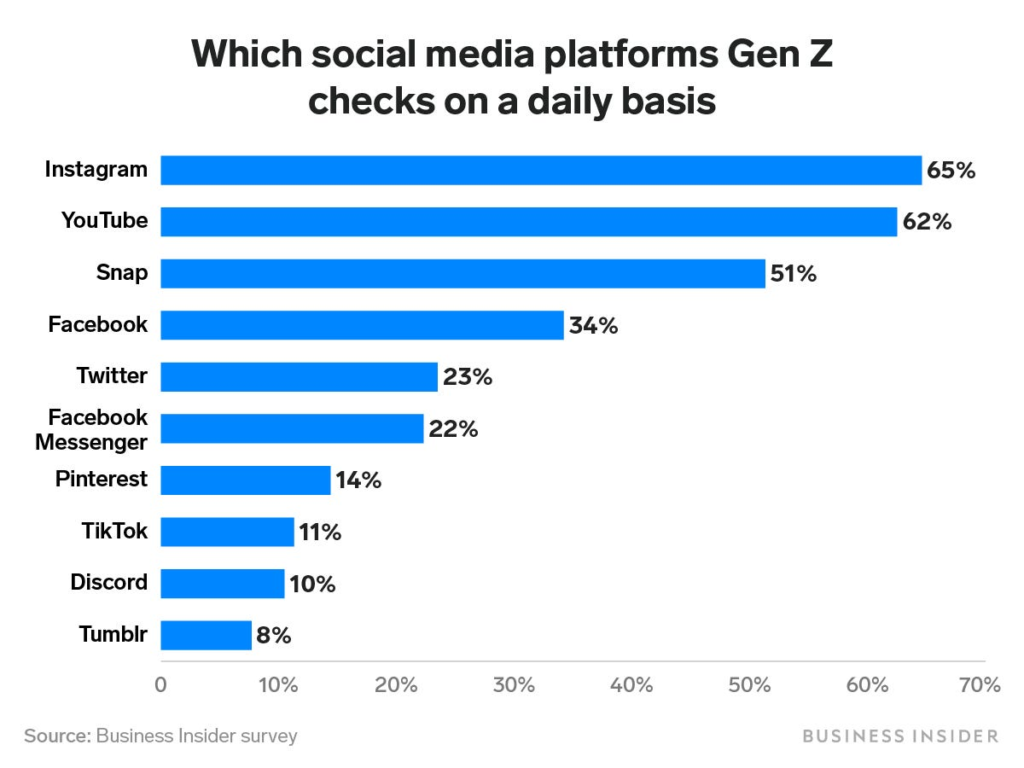
Instagram includes a mix of Millennials and Gen Z users. But what Gen Z prefers is emerging platforms, including Instagram Posts, Snapchat, and TikTok.
These sites also have a strong entertainment component—they are not quite as heavy as Twitter, but they do allow for private and political discussion.
It’s critical for marketers aiming to target Gen Z to choose the correct platforms—it is pointless to create content for them if they can’t see it.
2. Have a conversation
Posting on social platforms is only the first step—it’s an invitation to engage your audience in a dialogue. Marketers plan social postings during high exposure periods since more followers may comment on them.
Being responsive was always an essential aspect of social media tactics. However, leaving any comments unanswered does not reflect well on brands—whether these comments are harsh or supportive, a reaction is required.
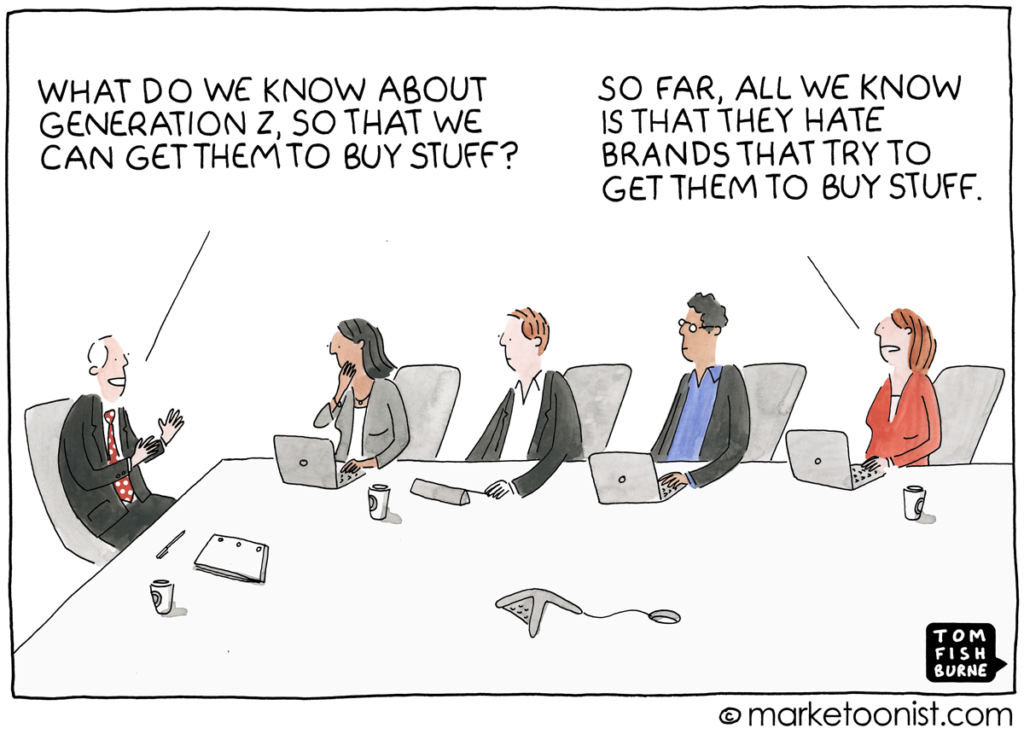
Digitally, Gen Zs seek firms that respond positively to comments or reviews. The stronger the engagement, the more inclined they are to engage with a brand. Conversations aid in stabilizing the brand relationship and increasing client loyalty.
3. Leverage their passion for influencers
When Gen Z sees a beauty brush or perhaps a new technology reviewed by an influencer, they realize what they are missing and are more likely to show interest in the product.
While influencers aren’t ideal for every other brand, a new survey showed that brands that indulge in Gen Z influencer marketing are more likely to increase engagement and push individuals to move to the pinnacle of the funnel.
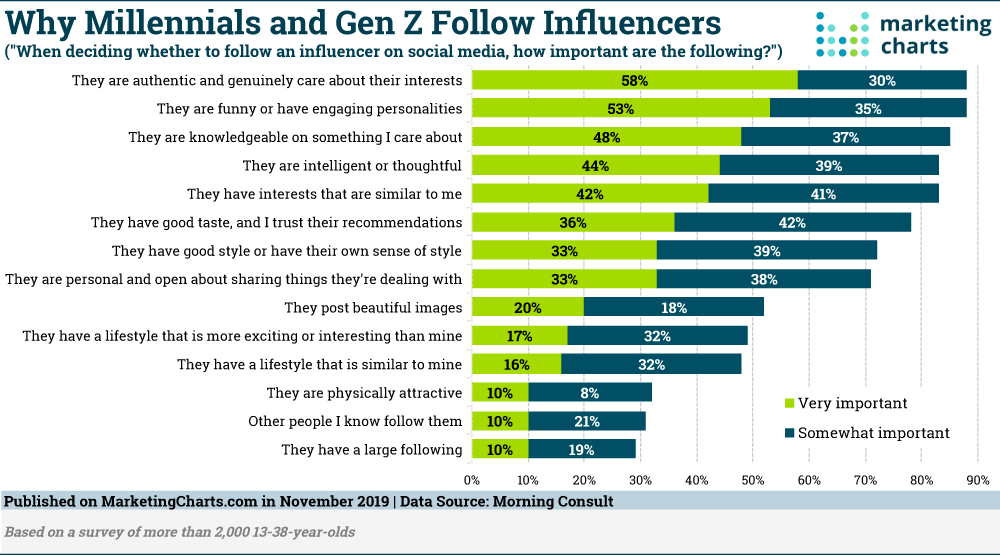
Stay abreast with algorithm changes and their implications—embrace microbloggers. As previously said, prominent personalities in social media may be prohibitively pricey, but their large fan bases might be less engaged than those with a lesser influence. Someone with a huge following of 5,000 people, for example, may have higher interaction rates than somebody with 50,000.
4. Personalization is essential
Personalization is an essential component of every marketing plan and should be applied across all platforms. Include names of subscribers in email campaigns, not just in the content.
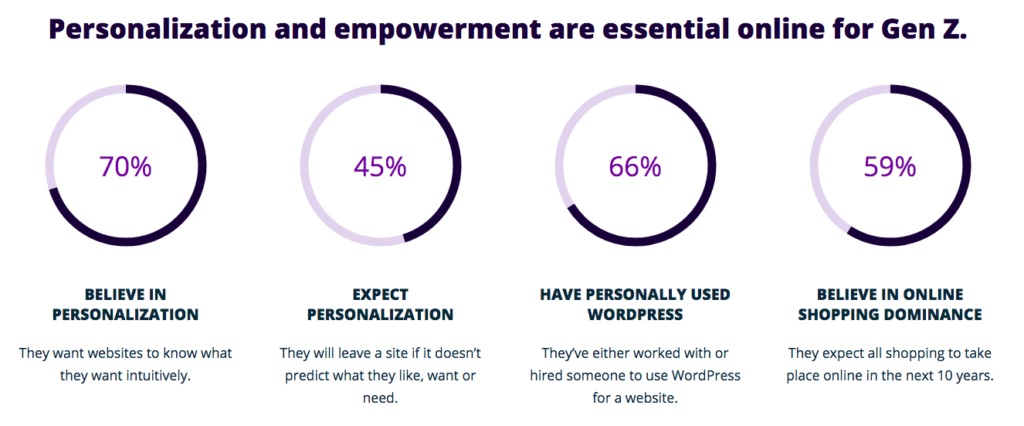
Even social media postings and ads for the Gen Z market must be adapted to distinct target demographics. Although Gen Z is a term used to describe a certain demographic, it does not imply that people are all the same.
When generating and spreading information, keep in mind that these clients have their own preferences, loves, dislikes, and personal relationships with a company.
5. Enhance your videos
Video marketing is already highly popular among Millennials and Generation X (people born between 1965 and 1980). Gen Z has also thoroughly embraced the genre.
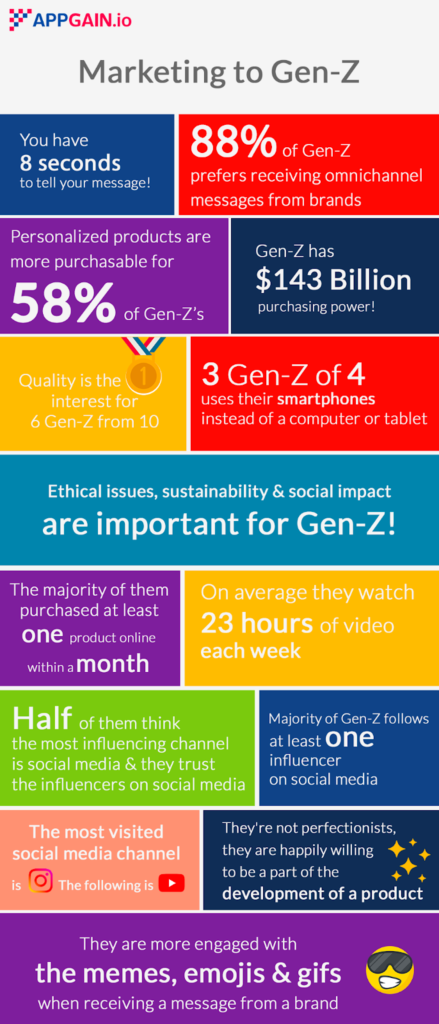
As per Google, creating any YouTube channel focused on content that will appeal to Gen Z instructions, explanation videos, and entertaining value is a move in the right direction.
Creating short content should be a top priority for marketers targeting this demographic. Marketers may create branded movies of various durations, which can be readily shared through video editing software platforms.
6. Keep it real
Authenticity is a top issue for this generation; they don’t like to see manipulated models or filtered photographs. Several firms have started signing off their comments and posts with the name of staff on social media duty at the time.
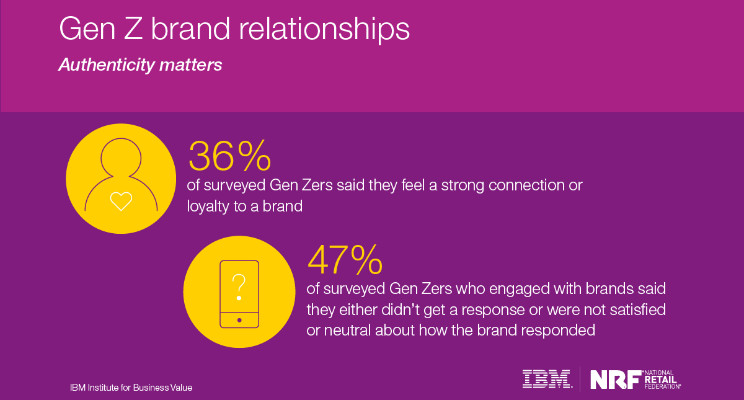
Brand digital marketers occasionally appear on TikTok or Instagram Stories, offering the product a human identity and face. Humanizing a brand helps it seem more accessible and will appeal to people of all ages.
Real people with actual circumstances produce more authentic footage and show a lifestyle that filters and photoshopped disguise.
7. Respect their privacy
Respect their privacy, increase their loyalty, and give them a reason to return to you. It’s critical to emphasize a commitment to privacy. Protecting privacy is important to 88 percent of Gen Zers.
They just wouldn’t readily provide personal information apart from contact details since they seek authenticity to feel comfortable. Many may just consider passwords, encrypting, and other security precautions, yet this is insufficient.
Safety and loyalty are also linked to product and service quality and the firm’s web page or application. Gen Z is unlikely to recognize a company that uses manipulated, poorly edited, or low-quality pictures on its website.
Encourage clients to submit feedback and make suggestions regarding ways to improve your company’s services as the final thing you can do to connect with people. Do not disregard their feedback and reviews.
Research suggests that 76 percent of Generation Zers anticipate a response from a firm when they submit their feedback. In the meantime, people prefer to leave numerous reviews, comments, and reviews; thus, the success of any brand is heavily reliant on testimonies.
8. Be inclusive
Because Gen Z is much more varied than prior generations, brands must strive for greater diversification, visibility, including inclusivity in marketing materials.
People of various abilities, nationalities, genders, inclinations, socio-economic, and cultural backgrounds should be represented in the visuals.
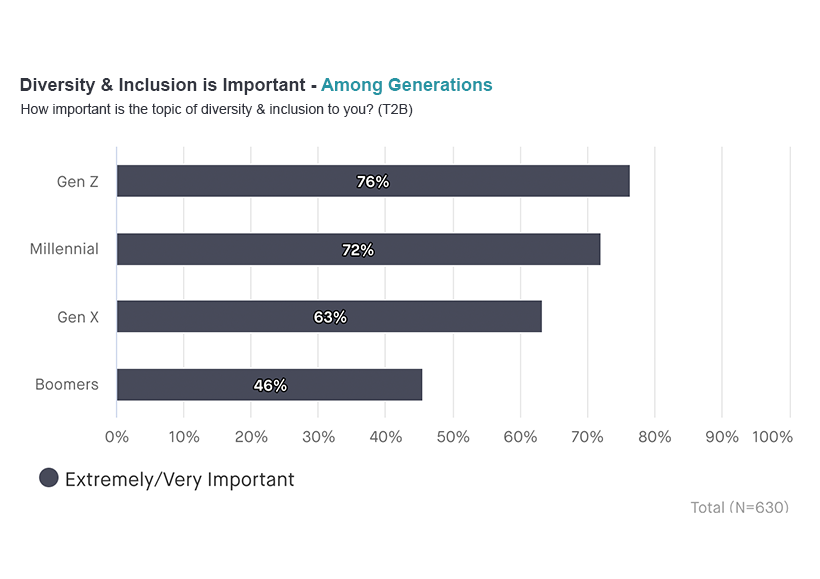
Creating and presenting case studies that educate the audience will maintain their attention for a long time.
As the saying goes, actions speak louder than words; therefore, companies should do more than just claim they support a cause; they must implement policies that represent those ideals.
9. Find the correct device.
According to IBM, approximately 75% of this demographic will select a smartphone as their primary device to work and play. Stats for other devices are also available from the same sources. Generation Z might prefer a laptop 45 percent of the time, a desktop computer 30 percent of the time, and a tablet 10 percent of the time.
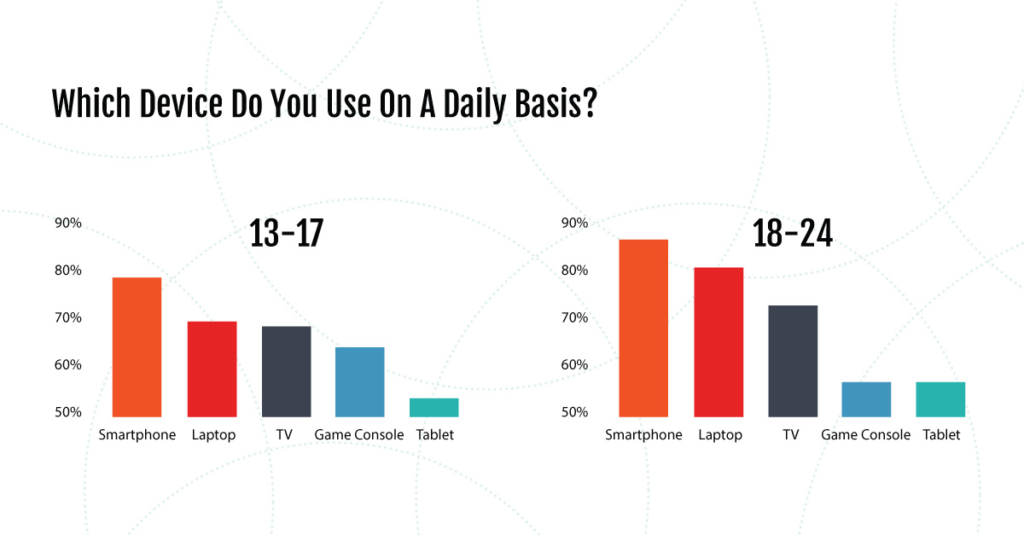
The least popular choices are game platforms, interactive devices, and wearable technology. Just about every member of Generation Z has a smartphone, which was formerly their major big-ticket item. According to Google, a cell phone is the most convenient to buy products and services. As a result, to attract Gen Z, a business must optimize for mobile devices.
More than 85 percent of Gen Zers today learn about new products via social apps on their cellphones. What customers know about brands and services on the internet has a significant impact on their purchasing decisions. Mobile devices, on the other hand, should not be the sole focus of marketing specialists.
10. Create a community
Your Gen Z marketing approach must include the creation of a digital community.
As per polls, Gen Z is the world’s loneliest generation; therefore, they’re actively searching for methods to engage and connect with like-minded people.
Collaborating with mega-influencers is one way for brands to help foster genuine connection and engagement, but it’s not the only way. What is the solution? Look for actual people with intriguing platforms who represent your company’s ideals.
Find some people who believe they could operate as ambassadors and connect with their connections less commercially and more authentically. It may be a creator, a musician, a thought-leader, and perhaps an activist.
Another option to create a network is to either seek Gen Zers’ advice and feedback throughout product development or recognize customers devoted to your business for years.
This will enhance your feeling of society and help establish trust in your brand—the Gen Z demographic places a high value on brand trust.
Gen Z advertising is a terrific method to engage with a younger crowd and a new kind of consumer: one who is value-conscious enjoys outspoken personalities and is looking for connection.
To Conclude
If reached correctly, Generation Z does have the potential to become a sizeable responding audience. It’s critical to recognize that marketing to all these individuals will differ from marketing to other generations.
Even if it’s difficult, if a firm is prepared to put in the effort to discover new clients and meet their requirements, Gen Zers will repay the organization for the investments made.
FAQs
Given Gen Z’s desire for short-form video content, marketers should consider combining visual channels into their strategy and generating bite-sized material like Instagram Stories. For influencers and businesses alike, short-form video with overlays, visual effects, and music has proved marketing gold.
Gen Z marketing necessitates more than just product sales. This generation is value-conscious and attracted to brands that “keep it authentic.” They’re innovative, fearless, and the originators of numerous trends across TikTok, Instagram Stories, and other social media sites.
Even though Gen Z has traditional tendencies, advertisers find it challenging to get through them through traditional marketing means. To assist them in choosing new items or experiences, Gen Z mainly relies on social networks and firsthand suggestions and evaluations from others.
Snapchat was perhaps the most popular social tool for connecting with others among Gen Z and Millennials. TikTok and Youtube came in second and third, with 91%.
Latest Blogs
Explore how Google’s 2025 AI search updates triggered ranking chaos. Learn actionable strategies to adapt your SEO for AI Overviews, zero-click searches, and SERP volatility. Stay ahead now.
Learn how to rank on AI search engines like ChatGPT, Perplexity, and Gemini by optimizing your content for authority, structure, and relevance. Stay ahead in AI-driven search with this strategic guide.
Explore the best healthcare SEO services for your medical practice. Improve online visibility and effectively reach more patients in need of your services.
Get your hands on the latest news!
Similar Posts

Branding
10 mins read
What Are Brand Guidelines, and How Do They Work?

Branding
8 mins read
Decoding the Branding Strategy of Patanjali

Branding
7 mins read